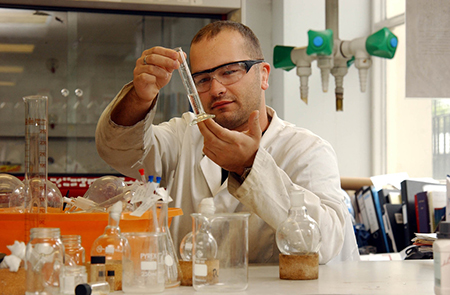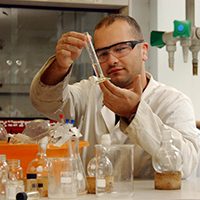 The scheme will see up to 26 PhD students join the University each year for the next five years
The scheme will see up to 26 PhD students join the University each year for the next five years
The University of Liverpool will support the next generation of environmental scientists, as a major partner in a Government award to fund more than 1,000 PhD students across the country.
Minister for Universities and Science, David Willetts, announced the national £100 million funding scheme, which will provide students with the opportunity to study across a wide range of environmental disciplines in 15 Doctoral Training Partnerships (DTPs) spread across the UK.
Major partner
Liverpool is a major partner in two of these – ‘Adapting to the Challenges of a Changing Environment’ (ACCE) and ‘Training the Next Generation of Environmental Scientists’. The scheme will see up to 26 PhD students join the University each year for the next five years.
In total, the DTPs will support 1,200 PhD students – meaning that at least 240 new researchers will begin training every year over the course of the scheme – with the money provided through the Natural Environmental Research Council (NERC) – the Government agency for funding and managing research, training and knowledge exchange in the environmental sciences.
The 15 partnerships include collaborations between 38 UK higher education institutions and 280 partners, including businesses, policy-makers, and public and third sector organisations. Liverpool is one of only two universities to participate in more than one partnership.
Each DTP will create a strong and active community of students that are able – and encouraged – to integrate, work, and learn together. The students will not only receive in-depth, advanced research training, but also learn skills such as commercialising research and entrepreneurship to help develop their careers in the future.
An integral element of the NERC DTP programme is that a minimum of 30% (or 360) of the students will work with and undertake research projects that are directly relevant to non-academic partners. This will help keep the UK at the forefront of research training, and provide students with the training experience they need to enter a wide range of careers.
Research strengths
Professor Mike Begon, from the University’s Institute of Integrative Biology, who is the Liverpool lead on the ACCE DTP, said: “Building a strong research community is essential in dealing with the ever-increasing number of challenges posed by changes in our biological, physical and chemical environment.”
Professor Ric Williams, from the University’s School of Environmental Sciences, said: “The award of the two DTPs recognises the research strengths in NERC science at Liverpool, occurring both within the University and the National Oceanography Centre, coupled with the complementary expertise provided by our partners at nearby universities. This funding will allow us to train over 100 new researchers with input from a wide variety of world-leading academics here at Liverpool.”
